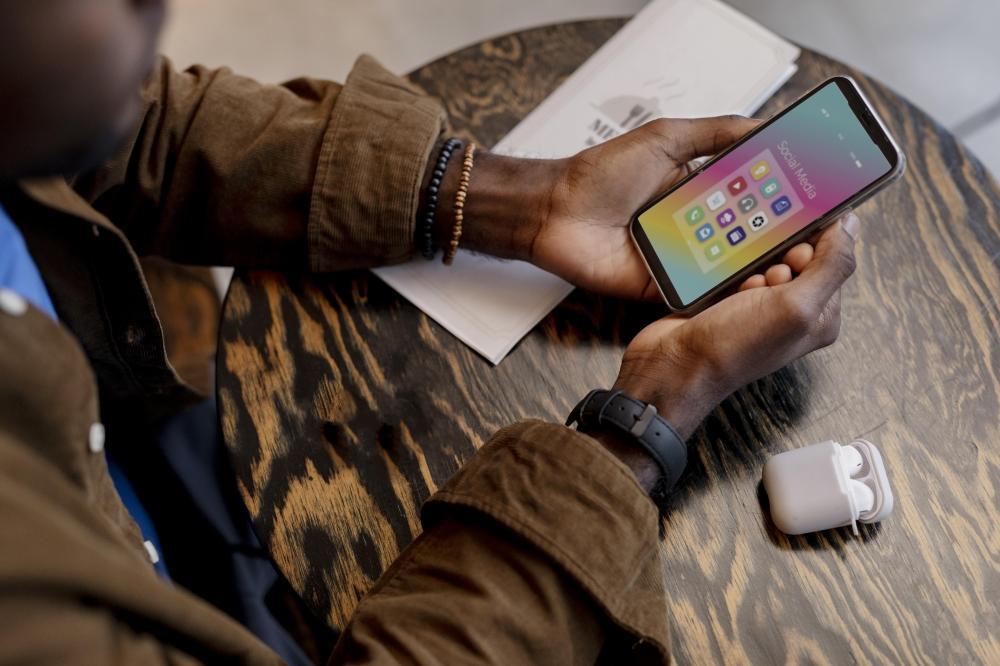Africa-Press – Rwanda. As the new school year begins, the return to classrooms should be filled with excitement and possibility. But for many young people in Rwanda, there is an invisible weight they carry with them. Beyond the pressure of exams or assignments; it is the cruelty of words spoken online.
I know this weight. When I became Miss Rwanda in 2020, I thought it would be one of the happiest seasons of my life. Instead, it started to become a massive fight. What was supposed to be a privilege turned into a challenge I never imagined. Overnight, people felt entitled to comment on everything about me; my body, my hair, the way I spoke, and of course, my grades. The excitement of the crown turned into daily attacks.
One of my options was to stay quiet, to hide under the covers and let depression take over. Another was to accept the narrative others were writing about me, even when it was false and cruel. But I chose to keep showing up, to keep reframing my own story. Still, the damage was done and felt. The comments always stay long after I logged off. People in my everyday life had seen them and believed them. Work opportunities and my livelihood were affected.
How cyberbullying hurts Rwandan youth
Physical bullying is painful in its own unique way; it usually stays within the boundaries of a schoolyard or neighbourhood. Cyberbullying spreads further and wider. An insult typed in Kigali can be read in Musanze within seconds. Strangers you will never meet suddenly believe they know who you are. And online negativity invites more negativity.
The internet exports the new narrative of shame and magnifies it.
This is not a small problem. Studies show that one in five adolescents worldwide experiences cyberbullying. The studies also show alarming connections between cyberbullying, suicidal thoughts, depression and anxiety. Among those, almost 40 percent report having considered suicide. In Rwanda, suicide is already the second leading cause of death for people aged 15–29.
Alcoholism and drug use are rising among the same age group as many young people turn to substances to silence the anxiety and depression. These are not just numbers. They are evidence of young lives with bright futures. I am using my platform to share that the harm is real. It is time for us to take this seriously.
Logging off is not enough.
Once words are written, they cannot be unseen. They remain in your head. They are repeated by others. They change how you see yourself.
What parents and institutions must do
We cannot continue to tell young people to “ignore it.” Cyberbullying is not an online drama; it is a public health issue.
Parents must learn to ask questions, to listen without dismissing.
Schools must train teachers to recognize signs of distress and create safe spaces for students to talk. Institutions must treat digital abuse with the same urgency as physical abuse, and laws must hold platforms and individuals accountable for harassment.
Equally important, we need to teach digital respect early. Today’s children must grow up knowing that behind every username is a human being who can be deeply hurt by what is said. We cannot only prepare youth to endure cyberbullying; we must also prevent them from becoming bullies themselves.
Choosing my narrative, calling for change
For me, it took courage to stand up and reclaim my narrative. I write more about this journey in my upcoming book More Than a Crown, where I share how I continue to choose my story despite the noise. But I know not every young person has the same support system or strength to do that. Many are suffering quietly. Some are turning to alcohol, some to isolation, and too many to suicidal thoughts.
That is why I am raising my voice now. Cyberbullying is eroding the mental health of Rwanda’s youth. It is costing lives. It is dimming potential. And it will keep doing so if we don’t act.
Compassion must not end when we log in. If we want Rwanda’s young people to thrive, we must protect them online as fiercely as we protect them in classrooms and communities. The time to act is now.
The writer is Miss Rwanda 2020.
For More News And Analysis About Rwanda Follow Africa-Press






